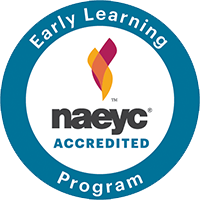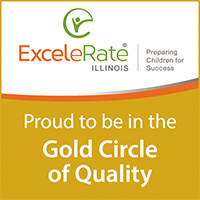- Child Development and Family Center
- Resources
- Articles
- The Importance of Self-esteem
The Importance of Self-esteem
By Sherie Newman (CDFC Teacher)
If you agree with Dorothy Briggs’ assertion in Your Child’s Self Esteem that “self-esteem is the mainspring that slates every child for success or failure as a human being,” then a crucial job for every parent and every teacher is affirming and building self-esteem in each child. As parents, our responsibility is even greater than that of a teacher’s, who comes in at a very close second, because we are the single most significant influence in our children’s lives. Aspy and Roebuck’s book, Kid’s Don’t Learn from People They Don’t Like, suggests how we view, value and treat children affects how much they learn from us.
You may be wondering why it is so important to build a child’s self-esteem. A child’s self-esteem begins to be formed very early, and continues being created day by day.
Self-esteem comes from learning to accept who we are by seeing the insufficiencies and still choosing to like ourselves. Every child’s self-esteem grows with each experience of successful interactions through positive words. It is important to build a child’s belief that they can handle their life and handle it well. According to Madelyn Swift, our emotional health depends on our self-esteem. Liking ourselves and feeling capable are the foundations on which emotional health rests.
You may ask yourself how you can help a child, your child, have positive self-esteem. After reading many different sources, experts seem to disagree on what the basic psychological needs are for building self-esteem. According to Madelyn Swift’s book, Getting it Right with Children, the basic psychological needs are to feel lovable and to feel capable. Another resource, a workshop I attended, said that freedom and encouragement is the combination needed for establishing self-esteem.
Here are five simple yet important steps that parents and teachers alike can take to build self-esteem:
- Listen to and acknowledge your child’s thoughts and feelings.
- Create situations that help your child experience success, not failure. Set clear and appropriate expectations, offer reasonable amounts of help, provide adequate incentives and remove obstacles.
- Give your child a feeling of reasonable control over their life.
- Reinforce that your child is lovable and capable.
- Show your child that you have a positive view of yourself.
According to the Family and Consumer Sciences at Ohio State University, “children will have greater self-esteem if they feel a sense of ownership and responsibility for their experiences.” The following are guidelines to follow for fostering self-esteem:
- Look at each child as a unique person
- Keep expectations realistic
- Give the freedom to make mistakes
- Build in success
- Give encouragement
- Accept children’s unpleasant feelings and teach them how to deal with them
- Give choices
- Give responsibility and expect cooperation
- Keep your sense of humor
Each child is truly unique. As parents and as teachers, we must learn to appreciate each child as an individual. According to the book Getting it Right with Children, a crucial part of our job as parents or teachers is to teach children how to own their lives, choices and responses, and to avoid becoming victims to themselves by their own lack of knowledge, skills or understanding. Each of us needs to learn responsibility and life‐recovery skills.
If you want to take one thing from this article, please consider this – nothing is more important or meaningful than bringing up emotionally whole and healthy, happy children. Children are the most precious gifts we can receive, let us as adults do the best we can by them.
Sources
- Self Esteem Myths even Plaque Experts
- Building Children's Self Esteem
- Discipline for Life: Getting it Right with Children by Madelyn Swift
-
Resources for Parents
- Parent Handbook (PDF)
-
Parenting Articles
- The Art Process
- The Importance of Music and Movement
- Helping Children Become Good Readers
- Raising Infants and Toddlers Into People You Like to Be With
- The Importance of Self-esteem
- Alternatives to Spanking
- The Four Stages of Toilet Learning
- All About Potty Training
- Establishing a New Routine
- The Not So Terrible Twos
- Building a Routine and Sticking With It
- Developmentally Appropriate Practice: How Can We Recognize It in an Early Childhood Setting?
Contact Us
Child Development and Family Center
Campus Child Care Center Building
DeKalb, IL 60115
815-753-0125
815-753-8502 (fax)
jboyer@niu.edu
Hours of Operation
Monday-Friday
7:30 a.m.-5:30 p.m.
Child Development and Family Center Annex
The annex is currently closed.

